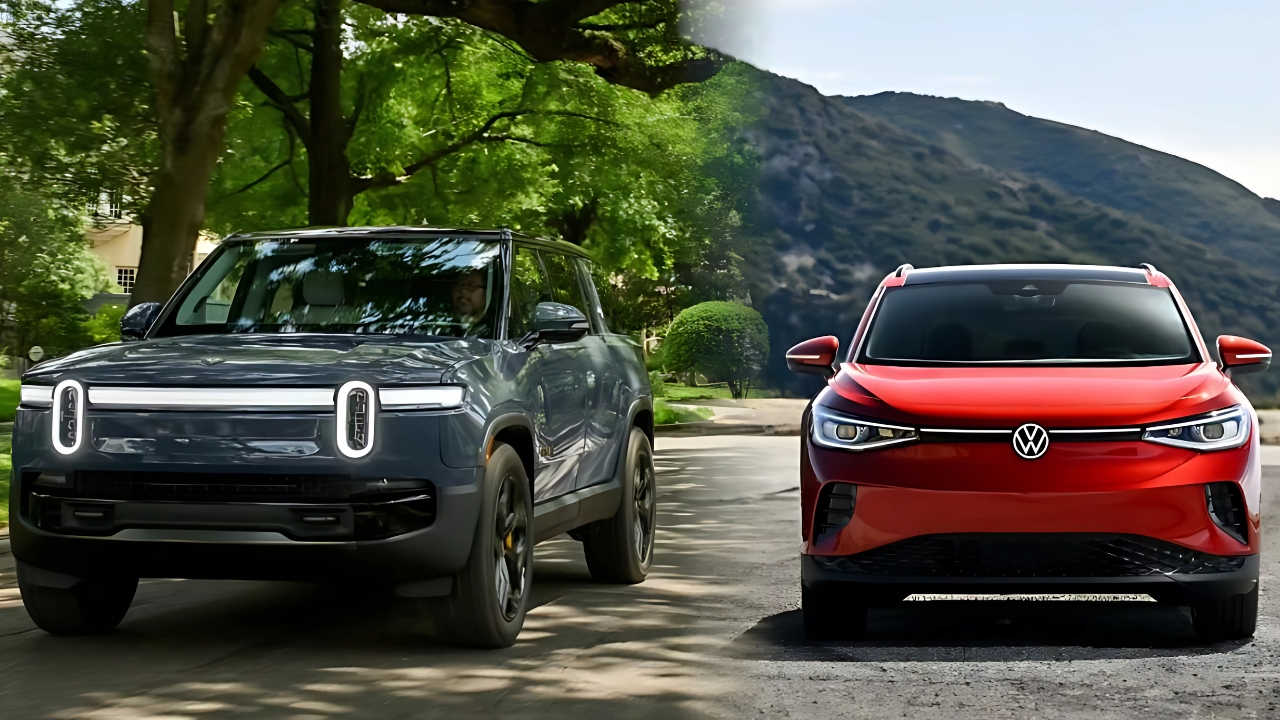The automotive industry is witnessing a seismic shift as Volkswagen announced its groundbreaking partnership with Rivian, adopting the startup’s R2 platform technology for all future electric vehicles. This development comes as Ford’s longtime partner VW pivots toward a different technological alliance, potentially reshaping competitive dynamics in the electric vehicle landscape.
Volkswagen Group plans to invest up to $5.8 billion in Rivian and the joint venture by 2027, marking one of the largest automotive partnerships in recent history. The SEC filing details the structured investment approach designed to accelerate electric vehicle development.
Technology Integration and Platform Details
Wassym Bensaid, Rivian’s chief software officer and co-head of the Rivian-VW joint venture, confirmed that “R2 is the platform that will underpin actually all future EV products from VW”. This modular and scalable technology stack will enable each Volkswagen brand to maintain distinct identities while leveraging advanced electrical architecture.
Implementation Timeline and Scope
The joint venture will utilize Rivian’s existing electrical architecture and software technology stack to enable the launch of Rivian’s R2 in the first half of 2026, with Volkswagen Group models following as early as 2027. The partnership encompasses all VW brands, including Audi, Porsche, Lamborghini, and the upcoming Scout brand.
Investment Structure and Milestones
| Investment Phase | Amount (USD) | Timeline | Requirements |
|---|---|---|---|
| Initial Convertible Note | $1 billion | Completed 2024 | Partnership formation |
| IP Licenses & Equity | $1.3 billion | 2025 | Technical integration |
| Milestone-Based Funding | $1 billion | 2025 | Two consecutive quarters $50M+ gross profit |
| Additional Investment | $2.5 billion | 2026-2027 | Performance milestones |
According to Department of Energy initiatives, such partnerships align with federal goals to accelerate EV adoption across all vehicle segments.
Impact on Ford’s Strategic Position
Interestingly, Rivian’s deal with Ford fell through years ago, making it unclear how this VW partnership will impact Ford in the long run. While Ford and Volkswagen maintain their existing collaboration on conventional vehicles and European EV platforms, VW’s technological pivot toward Rivian represents a significant strategic shift.
Market Implications
Canaccord Genuity analysts suggest the joint venture is likely to become the platform of choice in the Western world apart from Tesla. This development positions VW to compete more effectively in software-defined vehicles, an area where traditional automakers have struggled against tech-savvy competitors.
Future Expansion Opportunities
Rivian executives indicated that “other OEMs are talking to us and we’re trying to figure out how to support that in the future”, suggesting potential expansion beyond the VW partnership. The success of this collaboration could reshape industry standards for electrical architecture and over-the-air software capabilities.
The partnership demonstrates how traditional automakers are increasingly relying on EV specialists to accelerate their electrification strategies, potentially creating new competitive dynamics across the automotive sector.
Frequently Asked Questions
Q: When will VW vehicles use Rivian’s R2 platform?
A: The first Volkswagen Group models using Rivian’s technology are expected to launch as early as 2027.
Q: How much is Volkswagen investing in this partnership?
A: VW plans to invest up to $5.8 billion in Rivian and the joint venture by 2027.
Q: Will this affect Ford’s partnership with VW?
A: Ford and VW maintain their existing collaboration, but VW’s technological shift toward Rivian may impact future strategic decisions.
